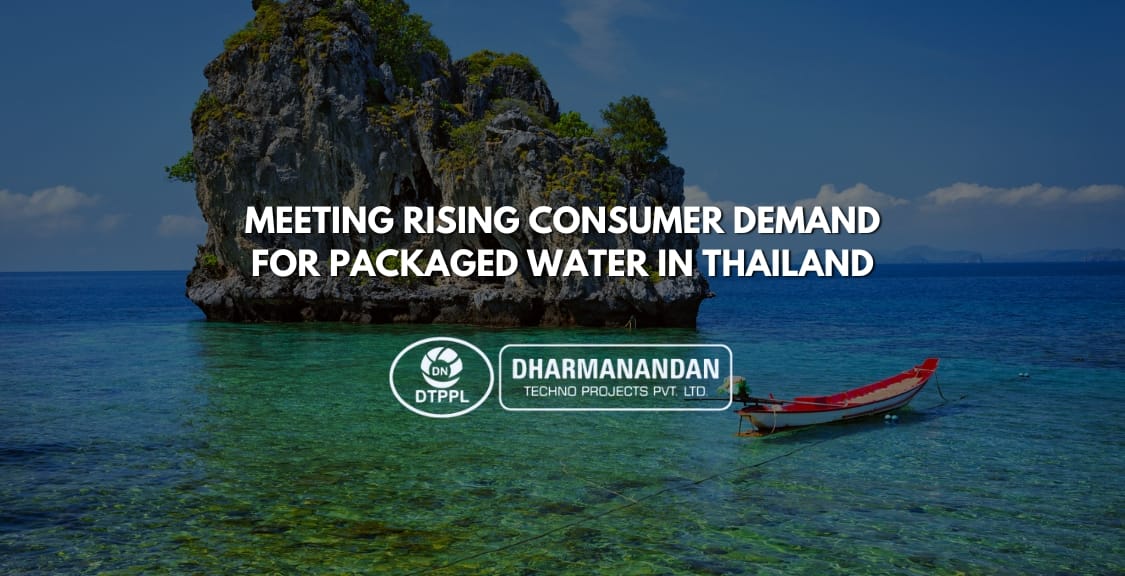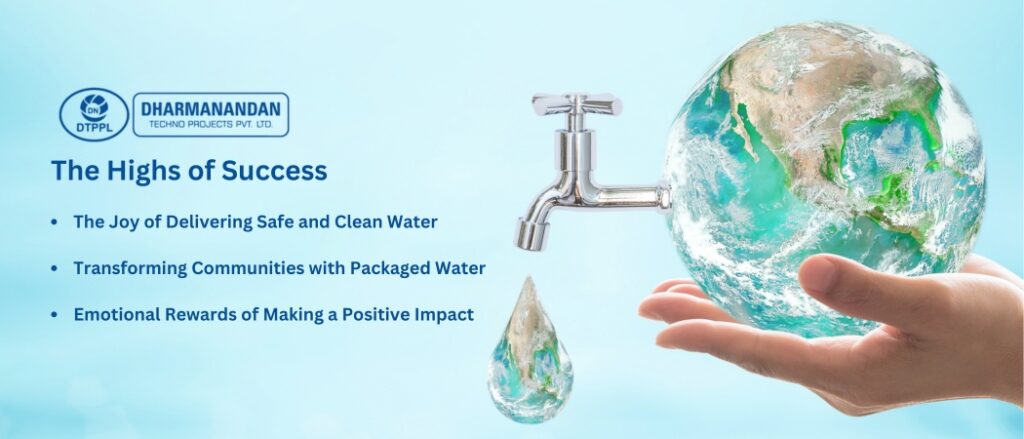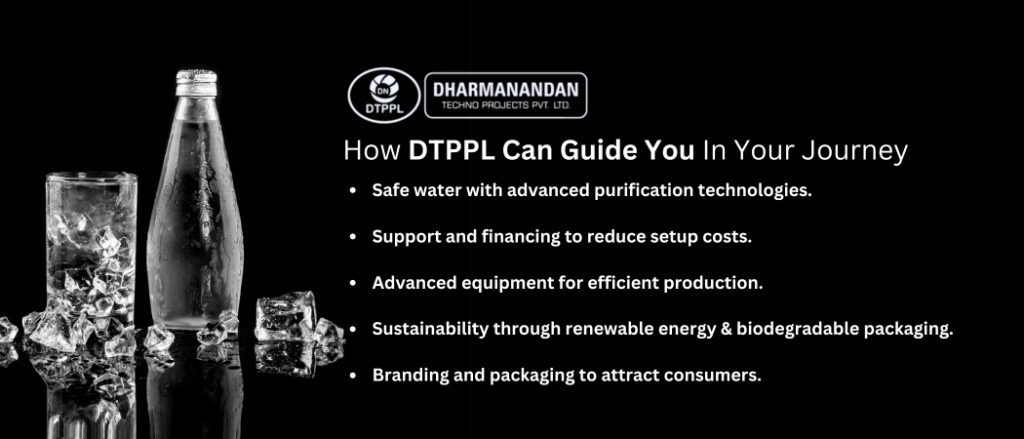
Table of Contents
Meeting Rising Consumer Demand for Packaged Water in Thailand
December 22, 2024
Thailand is a land of contrasts, where bustling cities meet serene landscapes and ancient traditions blend seamlessly with modern innovation. Yet, amidst the vibrant energy of this Southeast Asian gem lies a growing concern: access to safe, clean drinking water. As urbanization and tourism continue to surge, so does the demand for packaged water. For many, this demand represents more than convenience—it’s a matter of health and survival. The rise of mineral water plants in Thailand is not just a business opportunity; it’s a testament to resilience and the power of innovation.
1. The Human Cost of Water Challenges
In rural Thailand, families rely on untreated wells and rivers for their daily water needs, often grappling with the fear of contamination. The stress is palpable—parents worry about their children falling ill, while farmers struggle with irrigation issues exacerbated by water quality concerns. Even in urban areas, where water access is more reliable, concerns about safety persist, particularly during the monsoon season when flooding often leads to contamination.
The emotional toll of these challenges cannot be understated. The demand for packaged water isn’t just about convenience; it’s about restoring peace of mind. This is where the development of mineral water plant in Thailand plays a pivotal role, turning this crisis into an opportunity for transformation.
2. Rising Demand and New Opportunities
Thailand’s growing middle class, coupled with the influx of international tourists, has driven a sharp increase in the demand for packaged drinking water. Bottled water is no longer seen as a luxury but as a necessity in homes, offices, and public spaces. Entrepreneurs are recognizing this surge in demand as an opportunity to meet consumer needs while addressing long-standing water quality issues.
The cost of setting up a mineral water plant might seem daunting at first, but the potential rewards far outweigh the challenges. With the right technology and infrastructure, businesses can contribute to public health while tapping into a lucrative market.
3. Overcoming the Financial Hurdles
Setting up a mineral water plant is a complex and costly endeavor. The mineral water plant cost includes expenses for land, machinery, labor, and regulatory compliance. Entrepreneurs must navigate a labyrinth of challenges, from sourcing reliable mineral water equipment to securing permits. For many, the stress of managing budgets and deadlines is a constant companion.
Yet, the determination to provide clean water to communities keeps these visionaries going. Many plant owners in Thailand have turned to innovative financing options, partnerships, and sustainable practices to lower their operational costs and increase efficiency. Each small victory—a permit secured, a machine installed—is a step closer to realizing their dream of making safe water accessible to all.
4. The Role of Technology in Modern Plants
The success of mineral water plants in Thailand hinges on advanced technology. Cutting-edge mineral water machines now enable plants to process and purify water with remarkable precision. From multi-stage filtration systems to UV sterilization and automated bottling lines, these innovations ensure the highest standards of quality while keeping costs manageable.
For instance, many Thai facilities now incorporate mineral water bottle filling machines that enhance productivity and reduce waste. This level of efficiency is critical in meeting the growing consumer demand while maintaining competitive pricing.

5. Market Research & Brand Development
As the demand for packaged water continues to grow, understanding the market and consumer preferences becomes crucial. Insights into bottle sizes, packaging materials, and eco-friendly options help businesses cater to diverse consumer needs. Effective brand strategy—ranging from bottle design to logo creation—plays a key role in standing out in a competitive market. Attention-grabbing packaging not only enhances the product’s appeal but also communicates the brand’s commitment to quality and sustainability, strengthening consumer loyalty.
6. A Community-Driven Impact
The rise of mineral water plants isn’t just a boon for businesses; it’s a lifeline for communities. In regions where water scarcity and contamination were once rampant, these plants are making clean water accessible to schools, hospitals, and rural areas.
In some areas, the presence of a local mineral water plant has empowered women by creating jobs in bottling and distribution. These plants have become centers of economic activity, fostering growth and providing financial stability to countless families. The emotional impact of such initiatives is profound—clean water is no longer a distant dream but a tangible reality.
7. Addressing Environmental Concerns
As Thailand moves forward in meeting its water needs, environmental sustainability has become a critical focus. Modern mineral water plants are increasingly adopting eco-friendly practices, such as using biodegradable packaging and implementing water recycling systems. While these measures can increase the mineral water plant setup cost, they ensure long-term benefits for both the business and the environment.
Incorporating renewable energy sources like solar power has also helped many plants reduce their carbon footprint, aligning their operations with global sustainability goals. These efforts reflect a commitment not just to profit but to creating a better future for the planet and its people.
8. The Highs of Success
For entrepreneurs in the mineral water business, the journey is filled with challenges, but the rewards are equally compelling. Imagine the satisfaction of seeing pallets of bottled water leave a newly operational plant, bound for markets and homes across Thailand. Each bottle represents a promise of safety and health, a reminder that their hard work is making a real difference.
Communities, once resigned to unsafe water, now celebrate the arrival of clean, packaged water. The smiles of children drinking safe water for the first time, the gratitude of parents relieved of worry—these moments make every sacrifice worthwhile.

How DTPPL Can Guide You In Your Journey
1. Challenge: Water Safety Concerns
- Issue: Rural and urban areas face water contamination risks, impacting health and safety.
Solution by DTPPL:
- DTPPL offers advanced purification technologies, such as multi-stage filtration and UV sterilization, ensuring access to safe drinking water.
2. Challenge: High Setup Costs
- Issue: Setting up a mineral water plant requires significant investment in land, machinery, and regulatory compliance.
Solution by DTPPL:
- DTPPL provides expert support, sustainable practices, and financing options to reduce operational costs and streamline the setup process.
3. Challenge: Technological Hurdles
- Issue: Businesses struggle with selecting and implementing the right technology for large-scale water purification.
Solution by DTPPL:
- DTPPL supplies cutting-edge equipment, including automated bottling lines and advanced filtration systems, ensuring high-quality water production.
4. Challenge: Environmental and Sustainability Pressures
- Issue: The need for eco-friendly practices, such as sustainable packaging and energy-efficient systems, increases costs.
Solution by DTPPL:
- DTPPL supports sustainability through renewable energy, water recycling, and biodegradable packaging, reducing environmental impact.
5. Challenge: Market Competition and Brand Development
- Issue: The competitive bottled water market makes it hard to stand out.
Solution by DTPPL:
- DTPPL helps businesses develop unique brand identities, with insights into packaging design and market research to attract consumers and build brand loyalty.


Conclusion: A Partnership for Progress
The rising demand for packaged water in Thailand is more than just a business trend—it’s a call to action. Entrepreneurs, innovators, and communities are coming together to ensure that clean, safe water is available to all. But success in this industry requires the right partners—those who bring expertise, innovation, and a commitment to quality.
If you’re ready to join this movement and make a meaningful impact, DTPPL can help turn your vision into reality. As a trusted manufacturer and supplier of mineral water plants, DTPPL offers cutting-edge technology, tailored solutions, and expert guidance at every step of the journey. Contact DTPPL today to start your project and be part of Thailand’s transformation through clean water.
